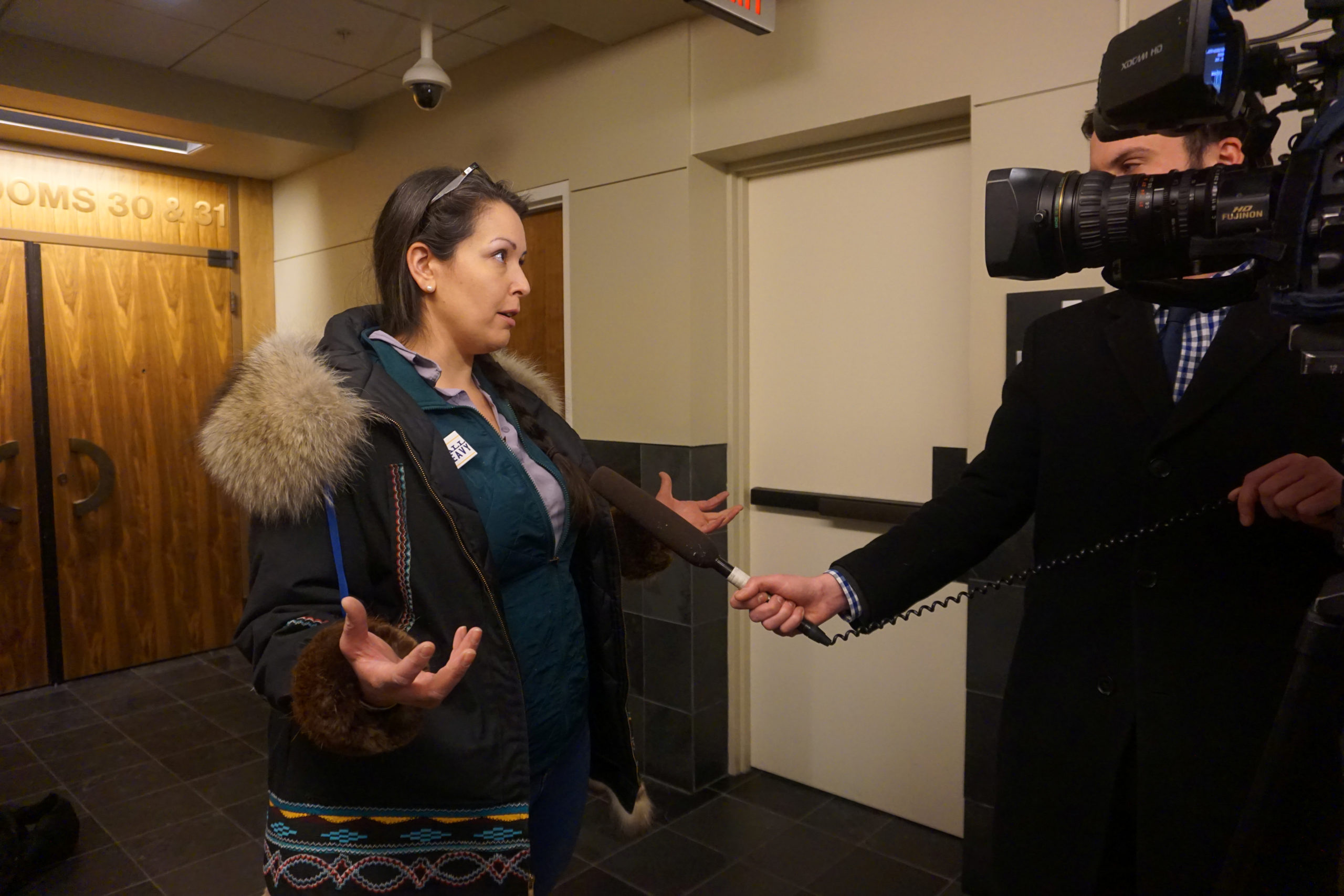The effort to oust Alaska’s governor gets court approval
Gov. Mike Dunleavy angered some Alaskans by proposing deep cuts to the state's education system, as well as with other cuts and policies that disproportionately affect the state's Arctic.

ANCHORAGE, Alaska — The campaign to oust Alaska’s governor received court approval to proceed on Friday when a judge ruled that the allegations against the first-term Republican meet the legal requirements for including a recall initiative on the 2020 ballot.
The voters have the right to determine whether Mike Dunleavy, 58, an ally of U.S. President Donald Trump, should be ousted, Superior Court Judge Eric Aarseth said in ruling from the bench.
“The recall process is fundamentally a political process,” Aarseth said. “This is not an issue for the judicial branch to decide whether the governor should stay in office.”
Dunleavy upset many Alaskans by seeking to slash the budget for popular services and vetoing more than 41 percent of state funding for the University of Alaska.
The cuts, which were poised to be especially devastating to the university system’s Arctic research programs, were eventually softened, but their continued threat has placed the state’s long-term status as an Arctic research leader in doubt.
Dunleavy also proposed other changes, such as cutting energy subsidies and stripping municipalities ability to tax oil and gas properties, that disproportionately affected Alaska’s Arctic communities, and disbanded the state’s climate team while getting rid fo the state’s climate policy.
[Alaska’s Arctic researchers can breathe easier for the moment, but political uncertainty remains]
Recall activists say the governor has also displayed legally defined unfitness for office, incompetence or neglect, including use of public money for political ads and a veto of judicial-branch funding that he described as punishment for court rulings in favor of abortion rights.
Dunleavy’s defenders argued during the hearing that the recall is based on policy differences with the conservative governor.
“This is a recall looking for grounds, not recall-worthy conduct,” said Brewster Jamieson, an attorney for the pro-Dunleavy group Stand Tall With Mike.
Aarseth’s ruling overturned a November decision by the Dunleavy administration’s Division of Elections that disqualified the recall from the ballot.
Recall campaigners in the courtroom audience embraced each other after Aarseth issued his ruling.
The group, which last year gathered enough signatures for a required first phase in the recall process, is confident that it will be successful in the second petition round.
“Alaskans are committed to this no matter what comes,” campaign chair Meda DeWitt told reporters outside the courtroom. “Dunleavy is the wrong man for the job. He’s lied to us. We need to move forward into a strong future and work together as a community.”
Qualifying for the ballot will require 71,252 signatures of registered Alaska voters, equivalent to 25 percent of the total votes in the last state election.
Dunleavy, an admirer of President Trump, has likened his plight to that of the impeached president and blamed “special interests” for the recall.
“My friend @GovDunleavy of the Great State of Alaska, is being treated very unfairly by the Democrats because he is doing an unbelievable job and fulfilling every one of his promises,” Trump said on Twitter in October.